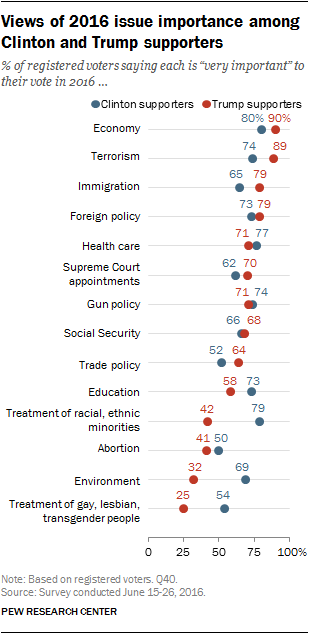Now Derb is hinting at taking the ‘black pill’: Two Weeks to the Big Cuck?
I’m a pessimist, so I don’t think the omens there are particularly good. Trump has expressed sympathy for the DACA illegals, and seems unenthusiastic about following through on his campaign promises on border security and birthright citizenship. A Big Cuck—Amnesty for the illegals in return for passing a budget bill, with maybe some worthless cosmetic measures on immigration enforcement—is a definite possibility.
It’s all been so unnecessary. If President Trump had acted forcefully, resolutely to end the DACA program on his first day in office, as he promised, we wouldn’t be facing the possibility of a mass Amnesty now.
From the comments:

To go total black pill is to give up all hope, as Ann Coulter seems to have done: HEADLINES FROM AN ADMINISTRATION THAT IS NOT PUTTING AMERICA FIRST
Andrew Sullivan recently wrote in New York magazine: “I don’t believe it’s disputable at this point that the most potent issue behind the rise of the far right in America and Europe is mass immigration. It’s a core reason that Trump is now president.” He called the Democrats’ sudden decision to treat illegal immigrants as a beloved constituency “political suicide.”
But the reason for being elected is not the same as being reelected. Provided the country isn’t in recession, reelection is almost always easier than being elected. What one has to keep in mind, as discussed earlier, is that politics is tribal/identity first and issues second. Because identity and signaling play such a large role in politics, even more so than issues, Trump’s failure to pass legislation won’t hurt him much among his ‘base’, but pundits such as Derb and Ann may be annoyed. Symbolic gestures such as Trump’s comments about the NFL or Pence walking out of a football game carry more weight than policy.
Second, the vast majority of voters vote based on party affiliation, with little spillover. What this means, Trump would have still gotten 45+% of the Republican vote, with or without anti-immigration rhetoric; maybe such rhetoric put him over the top, but it’s hard to know. [1] As discussed in the post Belated election analysis: was it just luck?, there is a large degree of randomness that well-worn media narratives such as “Trump won on Anti-globalism sentiment!” or “Trump won on anti-immigration sentiment!” cannot account for. Had ‘cucks’ Jeb, Crux, or Rubio been on the ballot, they still likely would have gotten 45% of the vote, and Hillary probably would have won.
So although I’m not optimistic about Trump’s ability to embody ‘alt-right’ values, as I correctly predicted in late 2016 and early 2017 would be the case, I firmly believe that unless the economy and stock market severely contracts (which I’m very certain won’t happen), Trump’s odds of being reelected are ‘good’, even without a wall or any major legislative accomplishments.
Trump keeps talking about the stock market making new highs, tax cuts, ‘defeating ISIS and terror’, and how strong the economy is–much more so than immigration and walls–and this is a good strategy in terms of reelection (even if the far-right wish he focus on immigration and disengage in interventionism), because voters’ perceptions of the economy are important. The economy, terrorism, and foreign policy consistently rank among top issues for voters, not immigration. Among Trump voters, the economy and terrorism edges out immigration by 11% and 10%, respectively:

But also, passing immigration reform is inherently hard due to resistance from both sides: by neocons (who want cheap labor) and dems (who want cheap votes).
The somewhat disappointing but understandable appointment of ‘Wall st. guys’ to Trump’s cabinet, and then Apr 7th air strikes on Syria, pretty much extinguished any hope of Trump being an ‘alt-right president’, but as the polls above show, terrorism and the economy are the two most important issues to voters; Ron Paul brand isolationism has never been a popular or tenable political platform in the offline-world (but he’s very popular online). Trump appointed cabinet members that he thought were competent to handle the economy.
Going back to Ann’s column, she fails to grasp that a major part of the President’s job is to engage with foreign leaders. One of the biggest criticisms by the left and neocons in 2016 was that Trump would hurt foreign relations, that foreign leaders hate Trump, and that foreign leaders would not work with Trump, but Trump is proving the left wrong.
[1] It won him the nomination, but general elections put more precedence on the economy.